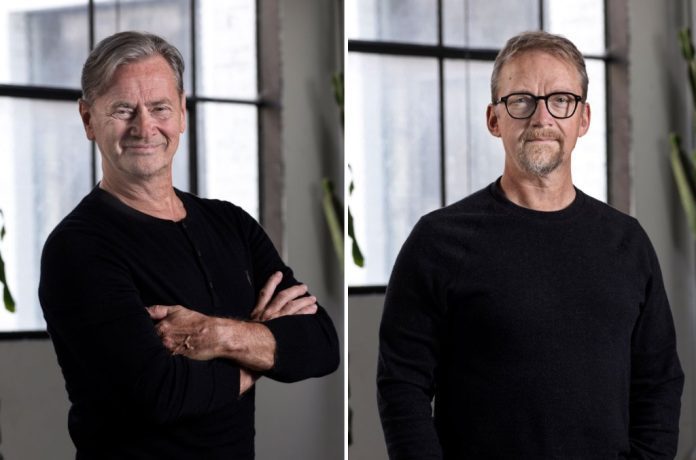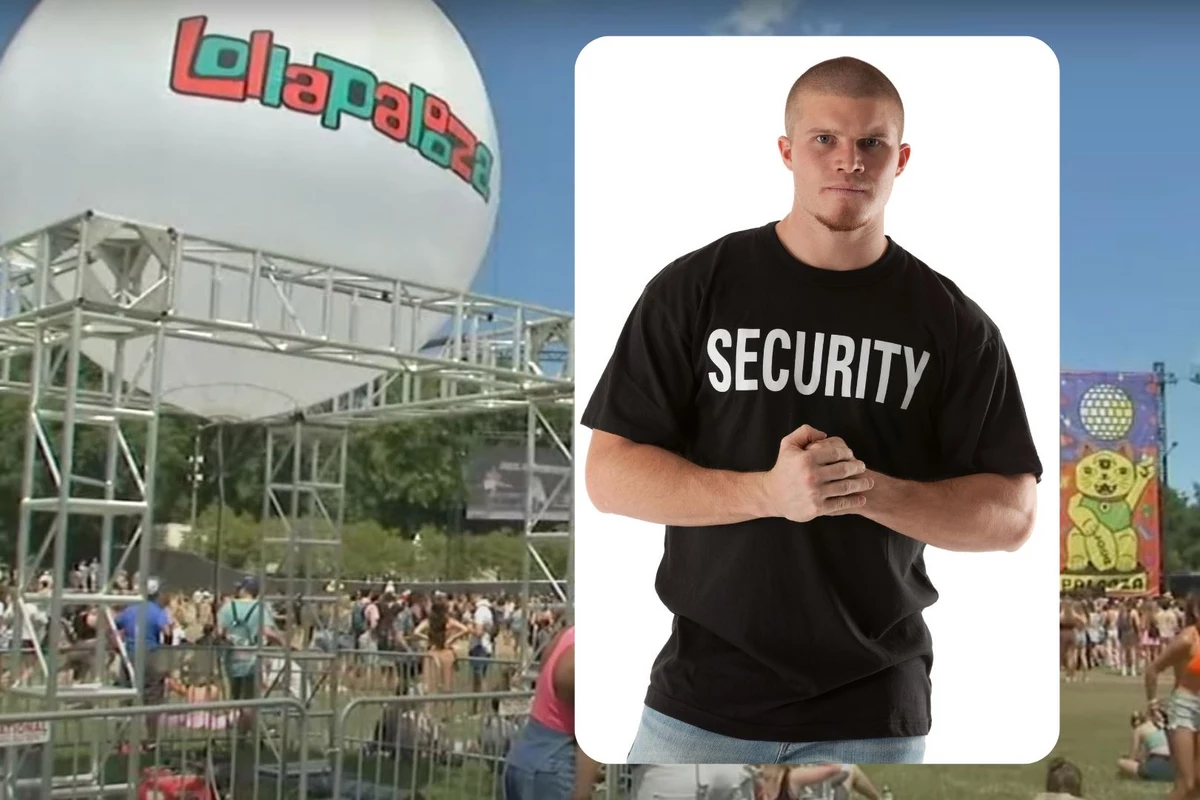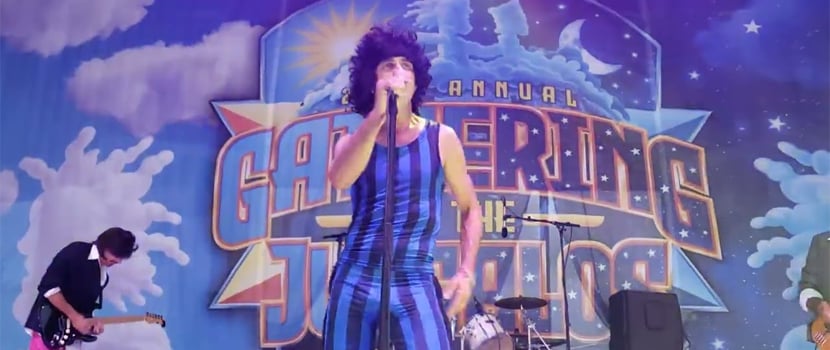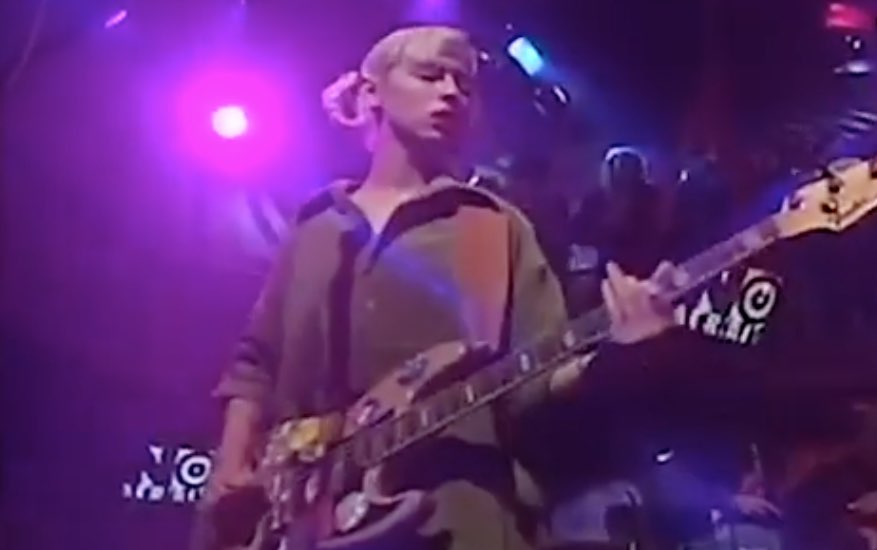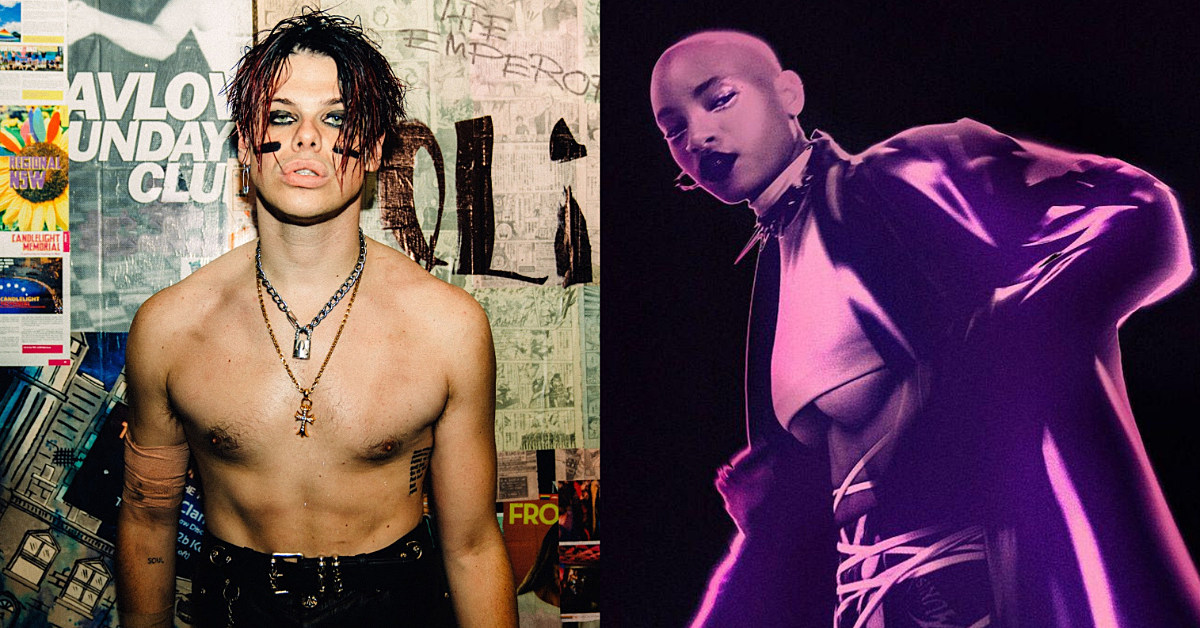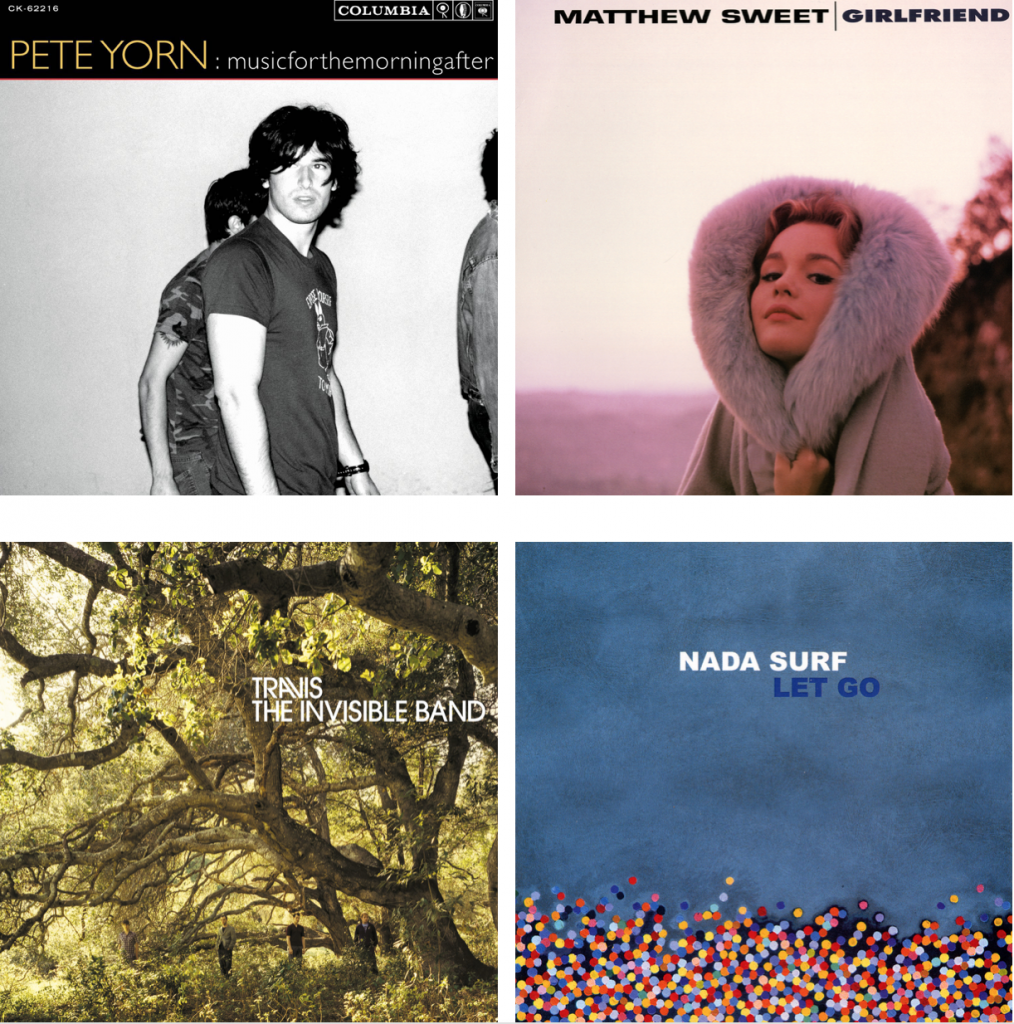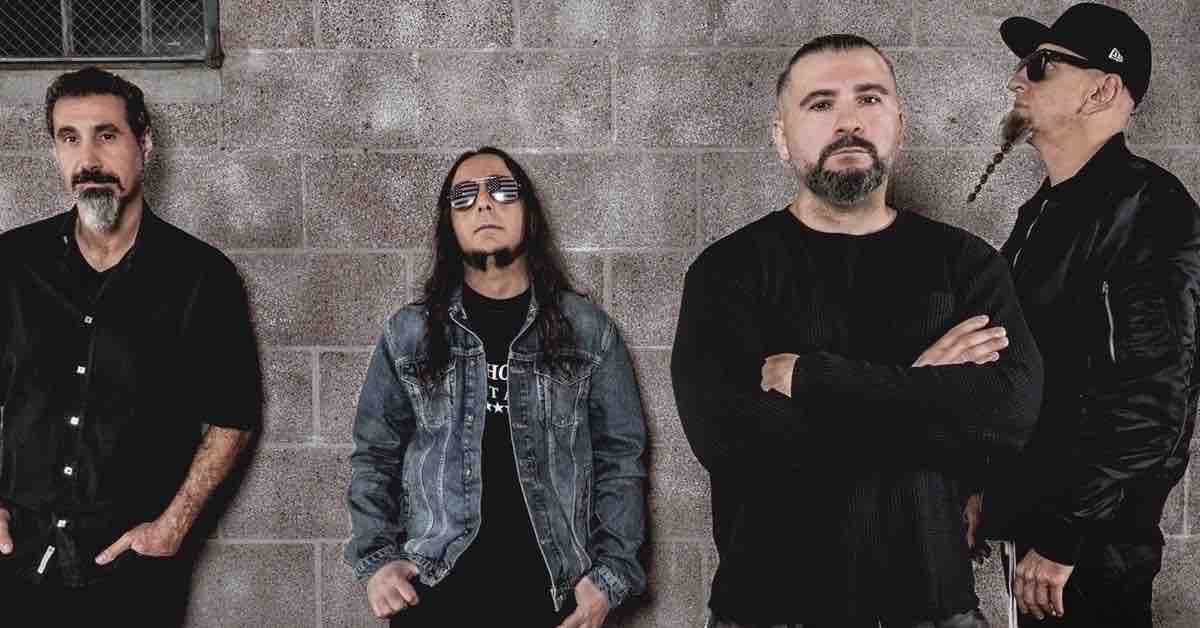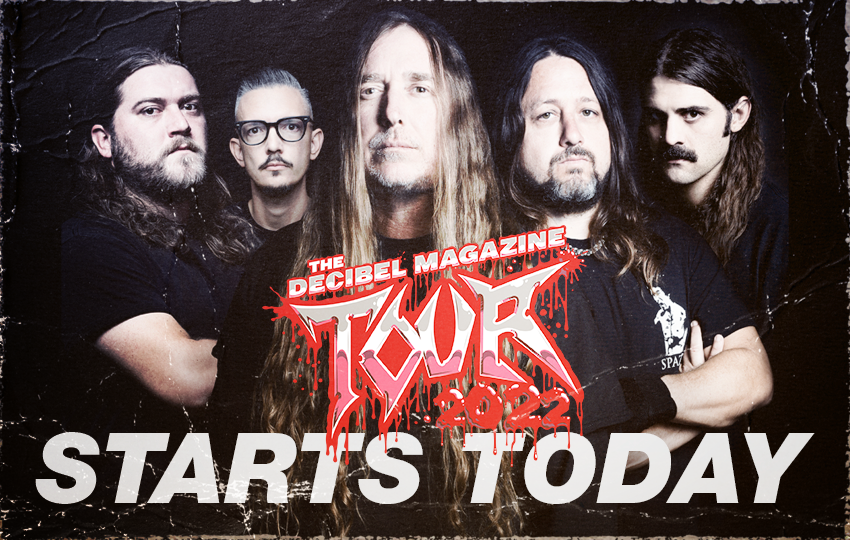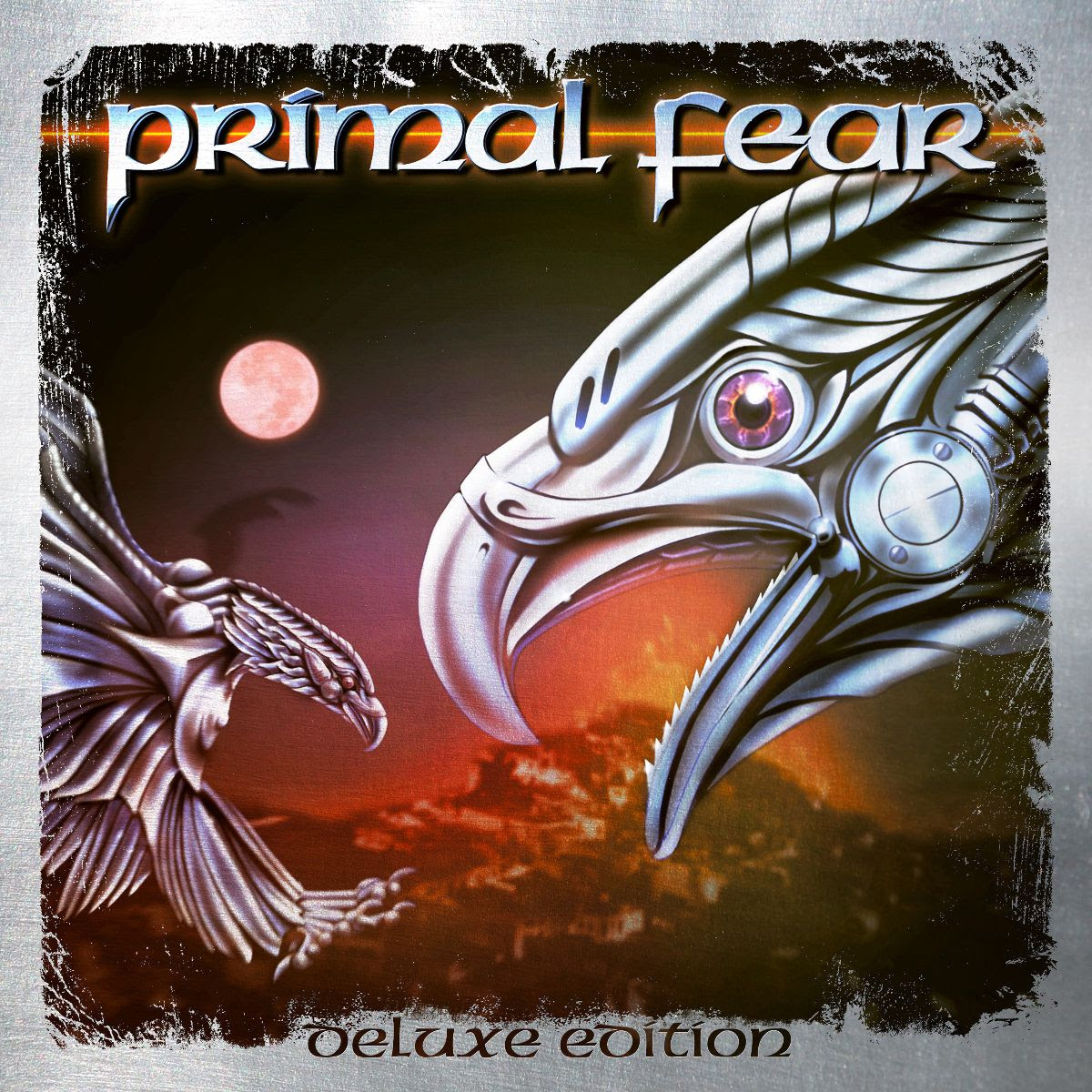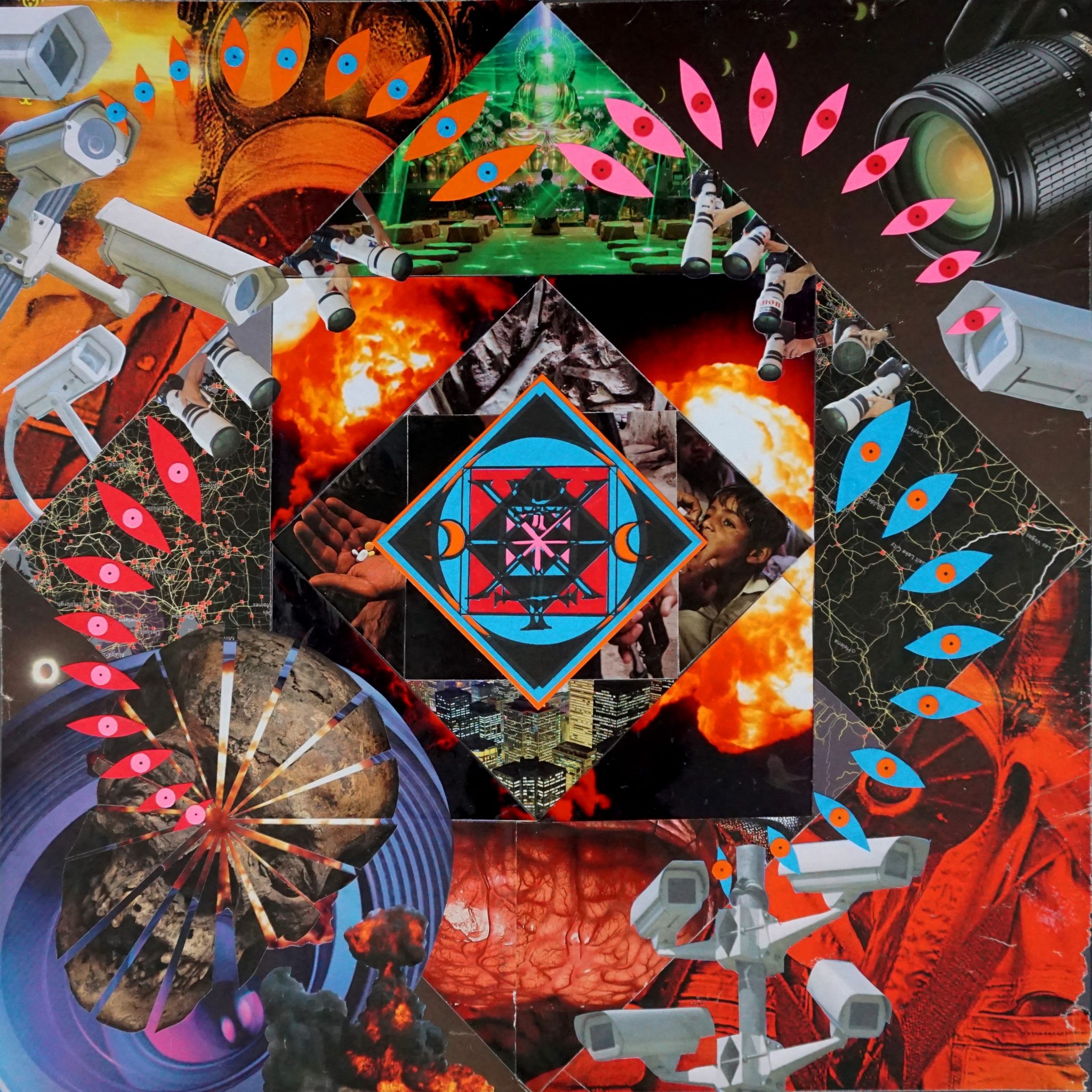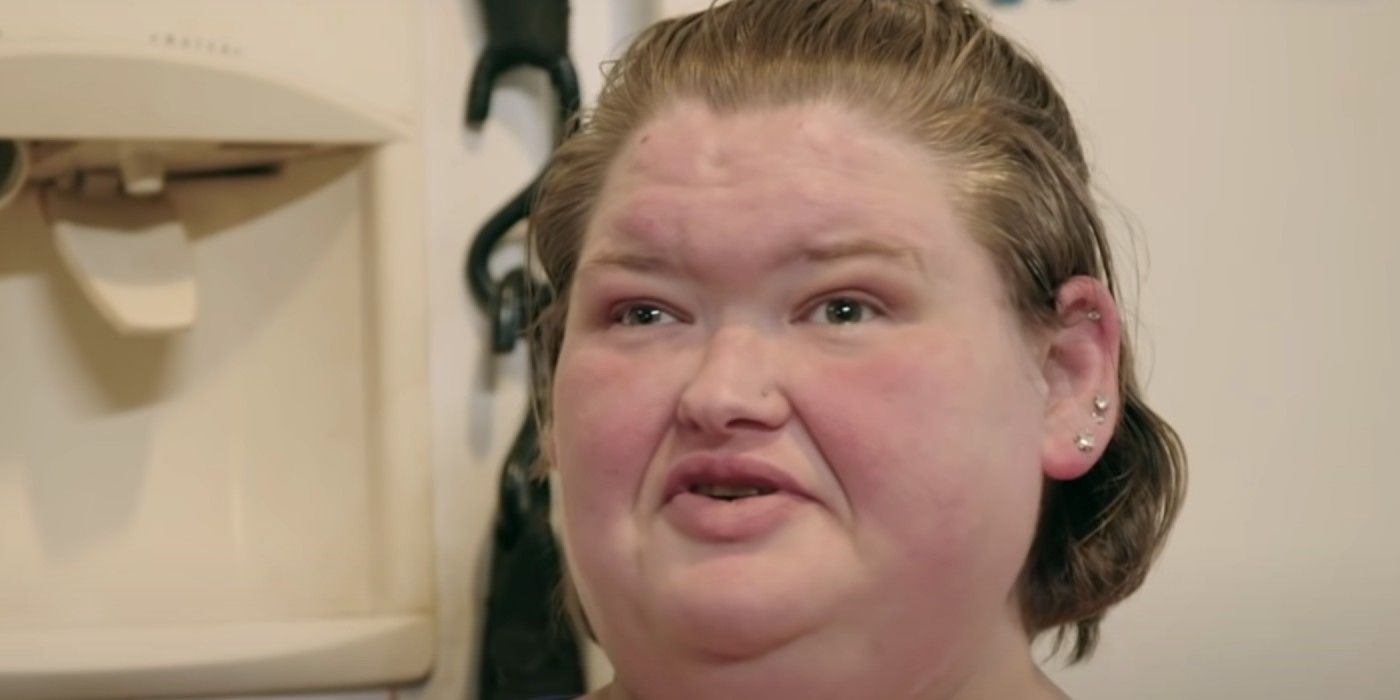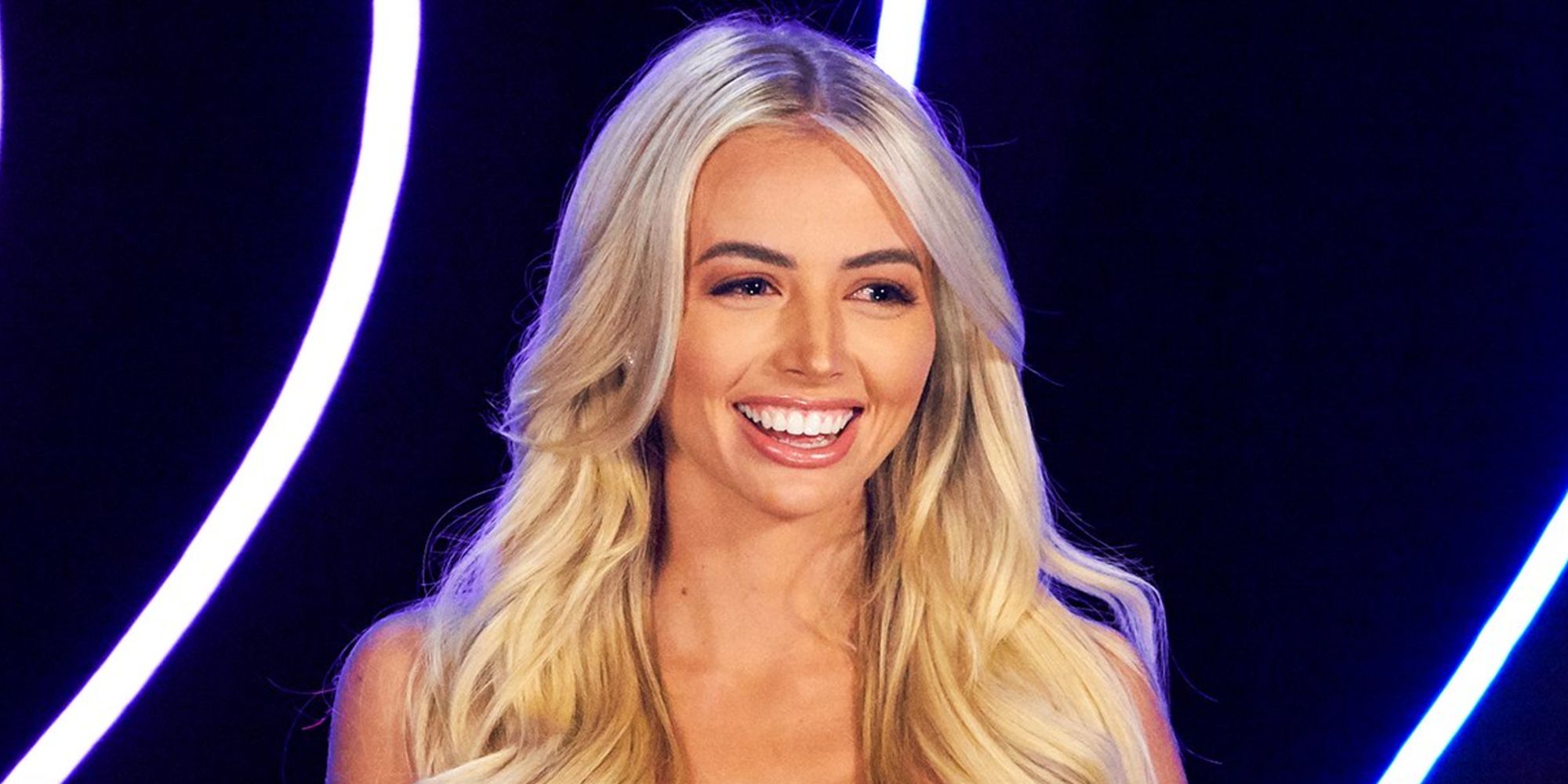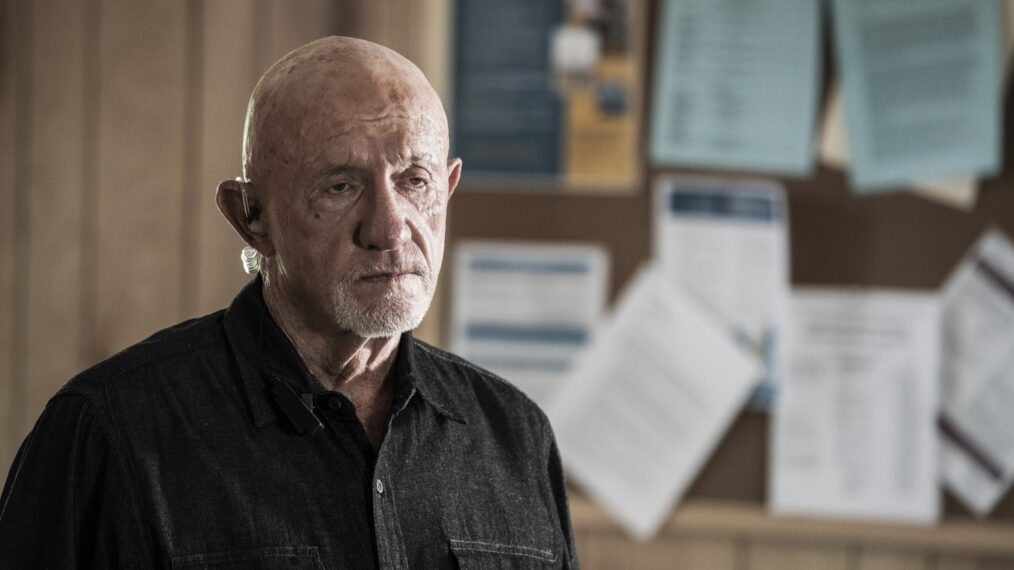
In 1955, an Italian journalist named Sergio Pugliese working at RAI, the state broadcasting company, proposed an idea that blossomed into a song competition among the countries of Europe, with the idea of uniting these countries a little over a decade after the end of World War II.
First broadcast on May 24, 1956, from Lugano, Switzerland, the Eurovision Song Contest has been presented every year since (with the exception of 2020 because of COVID). Along the way it has amassed millions of viewers and legions of fans worldwide, though the contest has had a very low profile in America, even with some songs faring well on the Billboard Hot 100, including “Volare” by Domenico Modugno (third place for Italy in 1958), “Waterloo” by ABBA (first place for Sweden in 1974) and “Love Is Blue” (Paul Mauriat’s Hot 100 No. 1 from 1968 being a cover version of the Luxembourg entry “L’Amour Est Bleu,” fourth place in 1967). Following their 2021 Eurovision win with “Zitti e buoni,” Italian rockers Måneskin saw their cover of “Beggin’” go No. 1 on Rock & Alternative Airplay in America.
Despite the contest having Super Bowl status in Europe, it wasn’t until Will Ferrell’s 2021 film Eurovision Song Contest: The Story of Fire Saga that the competition’s profile was heightened in the U.S. That profile is about to expand even more — after 66 years of making musical history, Eurovision has been adapted for the U.S. as American Song Contest, premiering on NBC on Monday (March 21) at 8 p.m. ET and PT.
Eurovision fans wondering if the American version would closely follow the format of the original were reassured when the network announced that among the executive producer ranks were two Swedish television executives who had experience producing the Eurovision Song Contest as well as Melodifestivalen, the Swedish national final to choose that country’s entry for Eurovision every year.
Billboard interviewed Christer Björkman and Anders Lenhoff about what viewers can expect from American Song Contest.
When did you first think about bringing the Eurovision Song Contest to America?
Christer Björkman: We have to go back to Eurovision in Kiev in 2017 because I was appointed the sole producer of that show and I realized I only had six weeks to do it. I needed help and I called Anders, interrupting his vacation in Norway. After we did Kiev and saved that for the European Broadcasting Union and for Europe and for everybody, Anders brought up the idea and said, “Shouldn’t we bring this to America?” and I looked at him like, “Are you crazy? Why would we do that and how would that work?” But he was very persistent.
Anders Lenhoff: It was one of those times in life when it really pays off to be naïve because I thought, “This should work. Why shouldn’t that work? Eurovision in the U.S.” It sounds like a brilliant idea with states competing instead of countries. Americans love music. Americans love competition. Americans love where they come from. They have an awesome amount of pride for their home state, for their hometown. And then we contacted (Swedish producer) Peter Settman because I’ve known him for 20 years. He gets things off the ground to make people want to buy something and I think that’s when Christer started thinking that people would actually go for it.
Christer: Yes, because I knew that we were enthusiastic but we cannot sell anything for the world. We would give it away. But Peter is all business and when Anders told me he spoke to him, I thought, “Now we have a team. Now we have all the skills that we need.” That was the turning point for me and I figured with Peter on board, we cannot only do it, we can also sell it.
Anders: I think that had we known the complexity of bringing a show to the U.S., this project would’ve never happened.
Christer: That’s like every project in the whole world. If you knew beforehand how hard it would be, you would never do it.
A lot of people have tried to sell the idea of an American competition modeled after Eurovision but no one did it until now. Once you teamed up with Peter, what were the next steps to make this a reality?
Christer: There are a few ingredients that made this possible. One is the phone call from Ben Silverman, who also tried when he was at NBC to get hold of this. He told us, “You are not doing this without me. Period. That’s not going to happen.” And then he sold himself like you couldn’t resist him. We were knocked out by his energy and positivity. Number two, we were lucky enough to get NBC on board because they already had the really talented professional team from The Voice and Songland. (Showrunner) Audrey Morrissey has worked with original music. She knows the complexity of that and she also knows how to create a good competition show. So we were in the best of hands with these confidants.
So NBC brought Audrey in because of The Voice and Songland.
Christer: Absolutely. Songland is important. It’s about songs and original songs. Audrey really knows what it takes and she knows all about rights, which is very sensitive.
Anders: She had that kind of understanding about what the show needs to be from an artist standpoint. That made her understand the show is different from the talent shows, which are not specifically about the music. They are about somebody’s journey to becoming an artist. This show is quite the opposite and I think it took her understanding of what artistry and song-making are to grasp that a lot quicker more than most Americans do.
What elements are you keeping from Eurovision and what did you change?
Christer: One of the most obvious things that had to be fixed is that there is no way we would survive 56 people [being awarded the top score of] 12 points. So we had to find a way of keeping the 12-point moment but not repeating it 56 times. Another (change) is to connect the artist with their state. The “postcards,” as we call them in Eurovision, become an anthem for the connection between the artist and the love for their state and music. That’s the journey. We make it into a sports event. It’s like the Olympics of song. It’s all about heart. It’s so positive. It’s so heartfelt. And these packages, as you call them here, they’re really great. It’s such a cool reminder I think to everyone and also to Americans of how wonderfully beautiful and vast your country is.
Anders: One of the key points to your question is that we needed to find a way to keep the soul and core of the show. One of the key elements of that is Christer, because he knows what works for the format. I’ve been in meetings where ideas would pop up and suddenly Christer goes, “Oooh,” and you realize that actually breaks the core of the format, because Christer is the test for that.
Eurovision, as it exists today, is made up of two semi-finals and a grand final, all held in one week. American Song Contest is going to take place over eight weeks. How will those eight episodes unfold?
Anders: We needed to make this into a season. Otherwise, it simply was not going to happen. Nobody wants the one-off. So it’s a fairly easy setup. It’s five qualifying shows. All 56 states, territories and Washington, D.C. are spread out over five weeks. In each qualifier episode, you have 11, except for one episode which has 12 songs, to make up 56. At the end of each show, there’s a jury vote winner and then three other songs that move on in the competition are revealed at the top of the next show. And then you reach the semi-finals which are episodes six and seven. You add two redemption songs – two of the songs that got eliminated make it back into the competition, one in each semi-final. You have two semi-finals with 10 songs in each. Five songs from each semi-final move on to the Grand Final, which is 10 songs.
Juries have been a part of Eurovision since it began in 1956. How will the jury in America be composed?
Christer: The jury consists of 56 people. One person from each state votes. They are music industry people, everyone from composers to artists to radio programmers to A&R staffers to – you name it. They will all be named.
And like Eurovision exists today, will be the voting be part jury and part public vote?
Christer: It’s 50-50, half jury and half the public.
Anders: And jury members cannot vote for their own state. The public will have a voting window of 36 hours.
Eurovision has a set of rules – songs cannot run longer than three minutes, contestants must be at least 16 years old and you cannot have more than six people on stage for each entry. What rules have you kept and which ones have you changed?
Christer: (Maximum song length is) 2:45. We kept the (minimum age of) 16. For the competing act, it is a maximum of six people. But musicians and dancers can be added, they (don’t count among the) six people. There could be a choir. There could be a lot of people on stage, but the competing act is not more than six people.
You’ve been in production for months. What has surprised you about the show so far?
Anders: When we saw the first interview packages, at that time with hundreds of artists, I was blown away by the commitment, by the engagement and by the sheer diversity of not just music but the states themselves, because that was part of the package. We’ve been to the states a lot but to very few parts of it, but when you see images and these people talking about everything from the U.S. Virgin Islands to Alaska to Maine to Idaho to places I’ve never heard of, the vastness of it is so impressive and really quite emotional.
Christer: There’s the corn state (Iowa). There’s the cheese state (Wisconsin). All these states are known for something and they’re so proud of it. It’s fantastic.
You said you first thought about doing an American version of Eurovision in 2017. Five years later, we are only days away from the broadcast premiere. What are your thoughts and emotions?
Christer: That is a brilliant question. I could compare it to the feelings I had when I produced my first Eurovision in Malmö (Sweden in 2013). With the excitement of such a release of something that you’ve dreamed of for so long and the buildup and the anxiety and the excitement and it’s all coming to an end, you know that there’s nothing more you can do. Just get it out there. You’ve done everything in your power and your knowledge to make it a good show and now you have to trust the TV gods.
When American Idol debuted in the U.S. in 2002, the producers were convinced they had a hit on their hands because of the massive success of Pop Idol in the U.K. After 66 years of Eurovision, what are your thoughts about having success in the States with American Song Contest?
Christer: I’m totally sure we will but I am not sure it will be an instant success. I’m going back in my mind to 2002 when we did the format in Sweden [for Melodifestivalen], and it took us three seasons and then it was like a ketchup bottle. It all popped out at the same time. It was okay the first season and it was okay in the second and then in the third season, it went bananas. You have to build a brand. You have to be consistent. You have to give it time and you have to show the love and consistency.
Do you have a clear idea in your mind about which of the 56 artists are going into the grand final and who is going to be the ultimate winner on May 9?
Christer: Not really, no. You need to see the acts, because this show is not only about a voice and about a song. It’s also the way it’s presented and until you’ve seen that, you don’t have the full scope. But I have an idea from the music, I have an idea who will make the finals. But winning, that’s difficult. There are so many good songs.
Christer, when you were producing Melodifestivalen in Sweden, did you usually correctly predict who was going to win from the 28 or 32 songs?
Anders: Yes, he did.
Christer: I could usually always tell. My radar is not as fine-tuned for the American market yet. It will take a few seasons to actually understand the full complexity of how people react to music here.
Anders: I agree with Christer. I can tell from my own personal taste and what I think will be successful back home, but we don’t have the understanding of the American market yet.
Finally, with the show based at Universal Studios in Southern California, what has it been like for two Swedes to spend a lot of time in Los Angeles?
Anders: Well, we avoided that thing — I don’t know if you’ve heard of it – it’s called winter.
Christer: It’s a town that grows on you. Really, in the beginning, you don’t understand anything. And then little by little, you start distinguishing that area from that area and then all of a sudden, you have favorite areas. And then it’s like, “Oh my god, this is really neat.” It grows on you. I wouldn’t say it’s on the same level of New York, but it’s getting there. It’s getting there slowly but surely.
